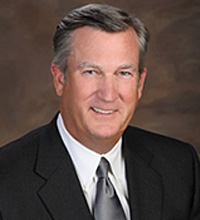The Myths and Realities of Defining Family Wealth: Whose definition is it anyway?
Webster’s Dictionary defines wealth as follows:
- Abundance of valuable material possessions or resources.
- All property that has a money value or an exchangeable value.
- All material objects that have economic utility, especially; the stock of useful goods having economic value in existence at any one time.
An online search on Wikipedia provides yet another definition of wealth.
“Wealth is the abundance of valuable resources or valuable material possessions. This includes the core meaning as held in the originating old English word weal.
An individual community, region or country that possesses an abundance of such possessions or resources to the benefit of the common good is known as wealthy. In popular usage, wealth can be described as an abundance of items of economic value, or the state of controlling or possessing such items, usually in the form of money, real estate and personal property. An individual who is considered wealthy, affluent or rich is someone who has accumulated substantial wealth relative to others in His or her society or reference group.”
Although Webster and Wikipedia focus on materialism, FFI studies, pioneers and thought leaders expand the definition to include a broader understanding of family wealth, moving away from the traditional definition and understanding of wealth as being solely measured by material possessions, income and financial holdings.
In this article I discuss the myths and realities of defining family wealth and introduce my definition as gained through the FFI GEN 202 course “Families of Wealth: A multidisciplinary approach,” interpretations from early pioneers and thought leaders in the field, as well as personal observations from life and professional experiences.
In GEN 202 Lesson 1, students are asked to consider three definitions of wealth: human capital, social capital and financial capital. In one of the reading assignments, “Six Dimensions of Wealth”, Dr. Dennis Jaffe suggests that there are six forms of wealth: spiritual, financial, human, family, structural and societal capital.
James E. Hughes Jr., in his book Family Wealth, defines the wealth of a family as the human and intellectual capital of the family, with financial capital being used to support the growth of the family’s human and intellectual capital.
For me, human capital holds the highest value in the definition of family wealth. Simply put, from my point of view, without the human capital there is no wealth, there is no family. If a family ceases to exist, the financial wealth is transferred to others by will or by law. The social capital of the family could remain, but without the family’s human and intellectual capital to carry on the work of the family, even the social capital could eventually erode.
It is the nature of life that parents, grandparents and those before them pass on. Although they are not thought of as “assets,” their contributions and influence on the family can be significant, and as such should be honored. When they pass on, the “Family Financial Balance Sheet,” as introduced by the Family Office Exchange and James E. Hughes in Family Wealth, is debited but their legacy and influence on the family can remain for generations.
The birth of children, new members of the family, is acknowledgement that, if all goes well given today’s life expectancies, the human capital of the family could last for another 100 years. That is a valuable asset and one, of course, to be celebrated.
Isn’t it a myth to consider only the transfer of physical assets in enterprising families as wealth? Instead the reality is that so much knowledge, wisdom, experiences, insights, and values are shared from grandparents to parents to grandchildren.
The immense value of human capital becomes profoundly understood when there is a premature interruption of a life so promising to a family. It is at that point that all things in life take on a different level of value with the understanding that the true wealth of families is in its loved ones.
Wealth has many definitions, but is it more important to accept these definitions of wealth or to add to the discussion in defining family wealth based on the family’s thoughts and beliefs? Family wealth is how each family defines its wealth and that is more important than the definitions of others.
The point is that it is up to each family to decide what it values most, arriving at its own definition of what family wealth means. Of course guidance from the readings of the early “pilgrims” in the field is helpful, but I ask that we consider other “measures” of wealth when discussing with client families their definition of wealth.
My own journey in defining family wealth found me reflecting on areas that matter greatly to my own family, namely our family’s heritage, our faith, the love we have for each other and our shared values. The process left me with an understanding that, for me at least, all other “assets” of our family were built upon the foundational walls of heritage, faith, love and values.
The Value of Heritage
Knowing the family ancestors and their stories, struggles, successes and tragedies encountered during their journey that brings the family to where it is today — seems to be of great value to a family. In thinking of the courage of these ancestors, the many risks they took, the faith and trust they had in their vision to make a better life for their family, one can’t help but come away inspired, humbled and “richer” for the experience.
The family learns of its cultural identity, the origins of its religious beliefs and the foundations of its values by exploring the family heritage.
Family Values
Values can be classified as assets or liabilities to family wealth depending on the set of values carried by the family and each individual within the family. As Roy Williams and Vic Preisser point out in their book, Philanthropy, Heirs and Values, helping heirs in identifying, understanding and living by a set of properly defined values can assist them in embracing money as a tool and not a definition of who they are, resulting in greater self-esteem.
An evaluation by families of the shared values and principles by which they lead their lives and guide their daily actions is not only a valuable exercise but can also offer future generations a greater understanding of their family at a given point in time. Having similar values within the family is key to trust, communication and building a shared vision for the future of the family. Are the values of a family not part of the family’s wealth?
The Value of Faith
There is of course faith in God or a “higher power.” Believing in something even if it cannot be proven connects the family and is, in my opinion, one of the foundational walls of family. Faith in family, knowing that there is compassion, understanding, forgiveness and love, connects the family like no other. Faith in each other, although often times difficult to maintain, is a large part of being a “family” and to me that is a major contributor to family wealth.
Love of Family
Is love not of value to the family? How do we define love within a family? Is it not the sinew of the family? Without familial love, the family is, as Hughes points out in The Compact Among Generations, simply connected by genetics. Love is the underpinning of all successful relationships. If a family is void of love it will be unsuccessful in tackling even the smallest of problems.
Concluding Thoughts
As pointed out earlier, there are many ways to define wealth or family wealth. It seems to me that consultants, coaches or advisors should help client families define for themselves their family wealth, those areas that are most important to them.
To me, wealth, specifically family wealth, could be broadly defined as all things valued by the family and the individuals that make up the family.
What’s your definition?
References:
Family Firm Institute, Gen 202, (First Quarter 2015) Families of Wealth: A multidisciplinary approach,
Hughes Jr. James E., Family Wealth, Keeping It in the Family, Bloomberg Press, Princeton, NJ, 2004, p 17 Family The Compact Among Generations, Introduction p xix, Bloomberg Press, New York, 2007
Jaffe, Dennis T. Ph.D, Six Dimensions of Wealth: Leaving The Fullest Value of Your Wealth to Your Heirs, Journal of Financial Planning April 2003
Wealth. Webster’s Seventh New Collegiate Dictionary, (1965) G & C Merriam Company, Springfield, Massachusetts, p. 1009
Wealth. (2015, February 11). In Wikipedia, The Free Encyclopedia. Retrieved 18:01, February 22, 2015, from https://en.wikipedia.org/w/index.php?title=Wealth&oldid=646676630
Williams, Roy, Vic Preisser, Philanthropy, Heirs & Values, Robert D. Reed Publishers, Bandon, Oregon, 2005, p. 6
About the contributor:
 Bo Boykin is president and founder of Synergy Wealth Advisors in Castle Rock, CO. He has provided investment consulting services to the financial services and insurance industries and has worked extensively with the broker/dealer community, a select group of financial professionals, high net worth clients and family trusts. Bo can be reached at bo@mysynergyadvisor.com.
Bo Boykin is president and founder of Synergy Wealth Advisors in Castle Rock, CO. He has provided investment consulting services to the financial services and insurance industries and has worked extensively with the broker/dealer community, a select group of financial professionals, high net worth clients and family trusts. Bo can be reached at bo@mysynergyadvisor.com.




